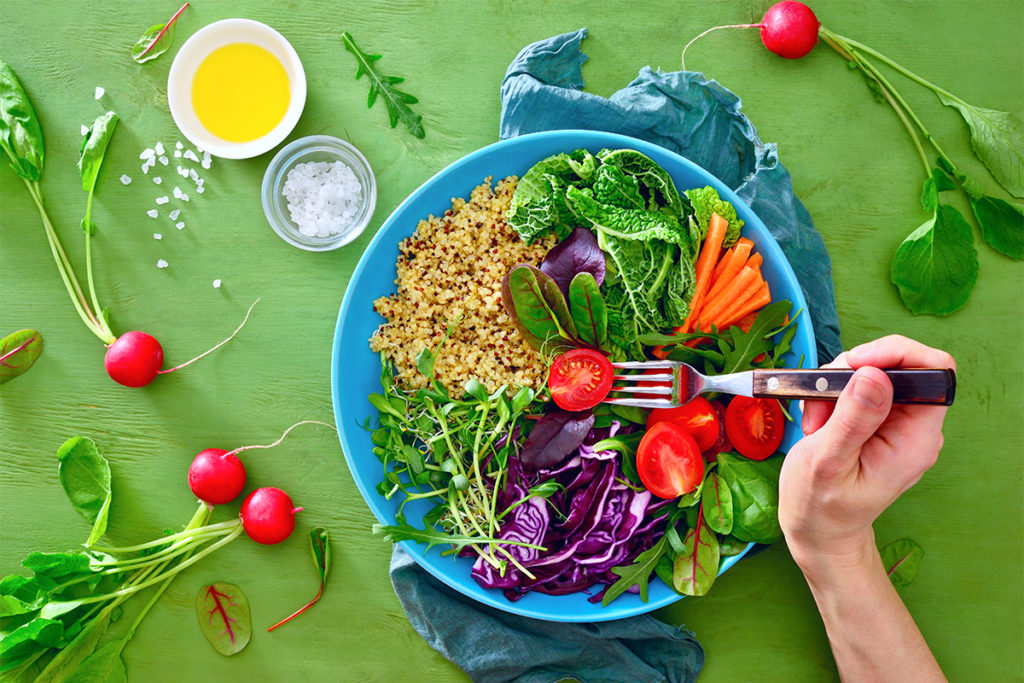How to Help Your Body Deal With Inflammation
Vegetables and other healthy foods can help you counteract the negative effects of inflammation.

Did you know that there are two types of inflammation, the body’s response to injury?
Acute inflammation is painful but essential because, by telling the body that injured tissues require immediate attention, it triggers immune reactions that help us heal.
Chronic inflammation, however, is bad. It plays a central role in heart disease, cancer, neurological disorders, autoimmune diseases, pulmonary conditions, anxiety and depression. It’s also implicated in Parkinson’s disease, type 2 diabetes, rheumatoid arthritis, psoriasis, osteoporosis, asthma and weight struggles (Barnes & Celli 2009; Dowlatshahi et al. 2013; Esser et al. 2014; Tilg et al. 2008; Yudkin et al. 2000).
Eating a plant-based diet is one thing that can help you manage inflammation and strengthen immunities. Teri Mosey, PhD, a holistic nutrition consultant with 25 years in the health and fitness industry, explains why this type of diet can help.
Why a Plant-Based Diet?
Choosing a primarily plant-based diet limits inflammation and supports the immune system, encouraging the body’s natural healing and cellular renewal. Plant-based foods are fruits, vegetables, whole grains, legumes, beans, nuts and seeds. A more plant-focused diet supports the immune system with an abundance of nutrients that you can’t get from animal sources.
Phytonutrients
Phytonutrients are bioactive plant compounds that enhance immunity. Among the thousands of phytonutrients, scientists have identified three categories that pack a powerful protective punch: glucosinolates, flavonoids and carotenoids.
Glucosinolates have been found to fight inflammation, support detoxification pathways and possibly protect against cancers. They’re found predominantly in cruciferous vegetables—arugula, broccoli, bok choy, cauliflower, Brussels sprouts, mustard greens and kale (Bosetti et al. 2012; Tilg 2015; Lam et al. 2009).
Flavonoids help prevent chronic ailments such as heart disease, cancer, neurological disorders and digestive illnesses. Flavonoids are found in berries, red grapes, citrus and green tea (Gonzalez-Gallego et al. 2010; Kumar & Pandey 2013; Serafini, Peluso & Raguzzini 2010).
Carotenoids are known for their antioxidant properties, particularly against heart disease and cancers. They’re found in sweet potatoes, carrots, squash and tomatoes (Rao & Rao 2007).





